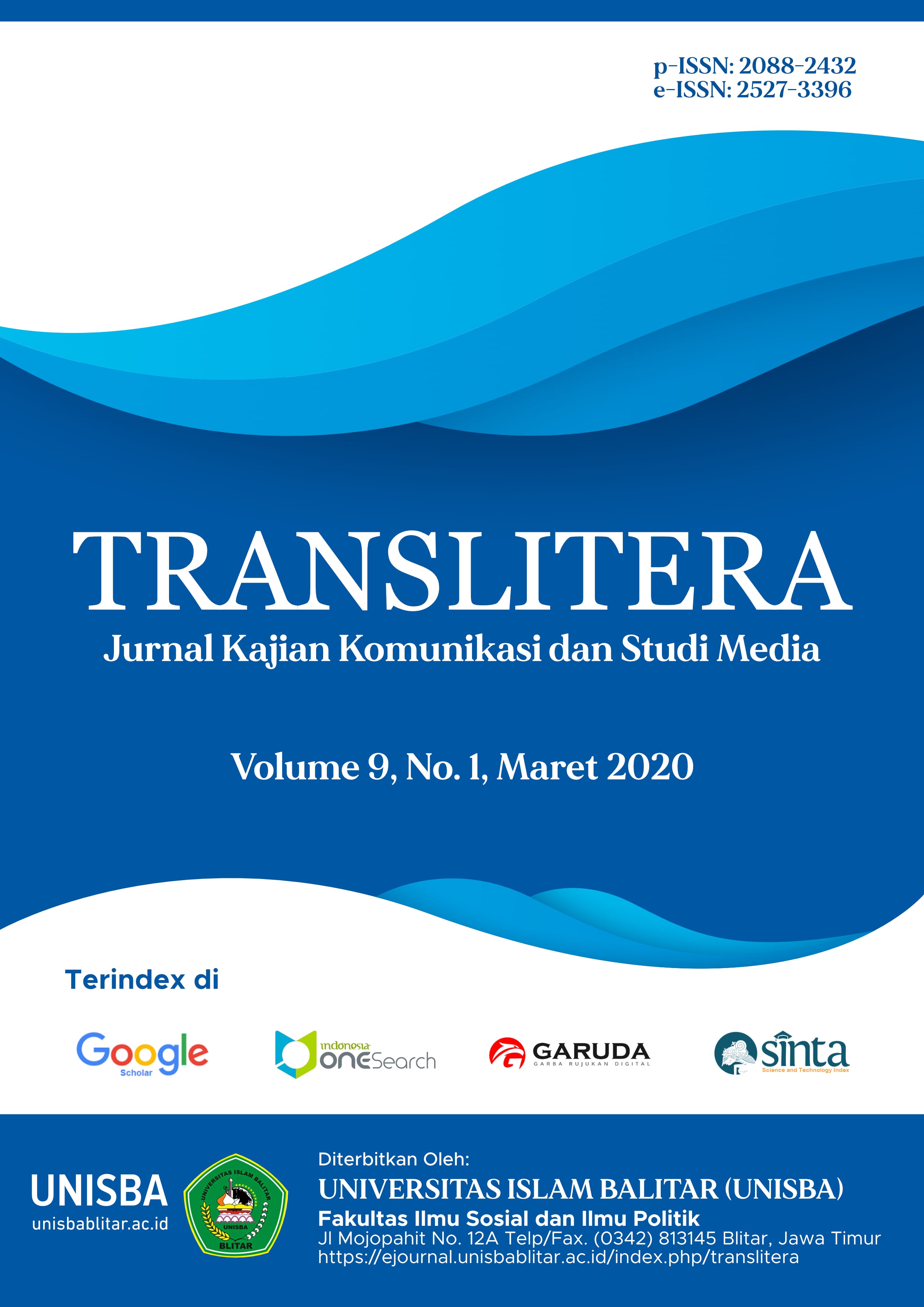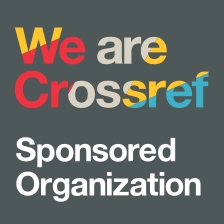PENGARUH DEBAT CALON PRESIDEN/WAKIL PRESIDEN TERHADAP PREFERENSI PEMILIH PEMULA PADA PILPRES 2019
DOI:
https://doi.org/10.35457/translitera.v9i1.905Keywords:
Electability, Beginner Voters, Mixed-Method, President Candidate Debates.Abstract
This study aims to determine the extent of Semarang voters initial preferences through 2019 President/Vice-President Candidate Debates. In this study, the mixed-method approach was used. In the first phase of research using a qualitative approach, where data analysis is done using ATLAS.ti software. The second stage is to conduct a quantitative data analysis using a descriptive analysis approach. The results of this study indicate that president/vice-president candidates who have the character of accurate, factual, trustworthy, experience, and real work are figures of the president and vice president expected by beginner voters. It can be concluded that the electability in president/vice-president candidate debates has the opportunity to convince the preferences of the beginner voters
References
Afriansyah, E. A. (2016, Mei). Penggunaan Software ATLAS.ti sebagai Alat Bantu Proses Analisis Data Kualitatif. Jurnal Pendidikan Matematika STKIP Garut, 5(2), 51 - 63.
Aji, D. S. (2018, 12 5). Pemilih Pemula, Pilpres, dan Golput. Retrieved 6 25, 2019, from www.kompasiana.com: https://www.kompasiana.com/danusukmawan/5c06ae72ab12ae66734f0bf3/pemilih-pemula-pilpres-dan-golput?page=all
Bartels, L. (2012). The Study of Electoral Behavior. In J. E. Leighley, The Oxford Handbook of American Elections and Political Behavior. Oxford: Oxford University Press.
Creswell, J. W. (2010). Research design: pendekatan kualitatif, kuantitatif, dan mix. Yogyakarta: PT Pustaka Pelajar.
Hartono, Y., & Putri, E. M. (2015). Pandangan Pemilih Pemula Terhadap Pemilihan Umum di Indoneia : Kajian terhadap pandangan siswa SMA Pangudi Luhur Van Lith Muntilan. Justisia et Pax, 31(2), 87 - 106.
Khairunnisa. (2017). Partisipasi dan Perilaku Pemilih Pemula dalam Pemilihan Presiden 2014. Jakarta: Program Studi Ilmu Politik Fakultas Ilmu Sosial dan Ilmu Politik Universitas Islam Syarif Hidayatullab.
Lestari, E. Y., & Arumsari, N. (2018). Partisipasi Pemilih Pemula pada Pemilihan Walikota Semarang di Kota Semarang. Integralistik, 29(1), 63 - 72.
Perangin-angin, P.-a. Z. (2018, Januari). Partisipasi Pemilih Pemula dalam Bingkai Jejaring Sosial di Media Sosial. Jurnal ASPIKOM, 3(4), 737 - 754.
Putra, D. K. (2015). Komunikasi Corporate Sosial Responsibility Politik. Jakarta: Prenamedia Group.
Renciansyah. (2014). Perilaku Pemilih Pemula Dalam Pemilihan Umum : Studi Kasus Pemilih Pemula di Kecamatan Siantan Tengah Kabupaten Kepulauan Anambas. Tanjungpinang: Program Studi Ilmu Pemerintahan Fakultas Ilmu Sosial dan Politik Universitas Maritim Raja Ali Haji.
Soeprapti, A., D.N, S., & Suparno, B. A. (2014, Januari - April). Komunikasi Dalam Proses Pendidikan Politik Pemilih Pemula Komunikasi Dalam Proses Pendidikan Politik Pemilih Pemula. Jurnal Ilmu Komunikasi, 12(1), 39 - 54.
Suprojo, A. (2013, Januari - Juli). Analisis Partisipasi Pemilih Pemula Pasca Ketetapan Komisi Pemilihan Umum tentang Sepuluh Partai Peserta Pemilu 2014 dalam Pembangunan Politik Masyarakat. Jurnal Reformasi, 3(1), 1 - 9.
Tinuntung, J. (2014). Partisipasi Pemilih Pemula dalam Pemilihan Bupati dan Wakil Bupati di Kabupaten Talaud : Suatu Studi Di Kecamatan Essang Selatan Kabupaten Talaud. Jurnal Politico, 1(5).
Wardhani, P. S. (2018, Juni). Partisipasi Politik Pemilih Pemula dalam Pemilihan Umum. Jurnal Pendidikan Ilmu-Ilmu Sosial, 10(1), 57 - 62.

Downloads
Published
Issue
Section
License
Authors who publish with this journal agree to the following terms:
- Copyright on any article is retained by the author(s).
- Author grant the journal, right of first publication with the work simultaneously licensed under a Creative Commons Attribution License that allows others to share the work with an acknowledgement of the work’s authorship and initial publication in this journal.
- Authors are able to enter into separate, additional contractual arrangements for the non-exclusive distribution of the journal’s published version of the work (e.g., post it to an institutional repository or publish it in a book), with an acknowledgement of its initial publication in this journal.
- Authors are permitted and encouraged to post their work online (e.g., in institutional repositories or on their website) prior to and during the submission process, as it can lead to productive exchanges, as well as earlier and greater citation of published work.
- The article and any associated published material is distributed under the Creative Commons Attribution-ShareAlike 4.0 International License











